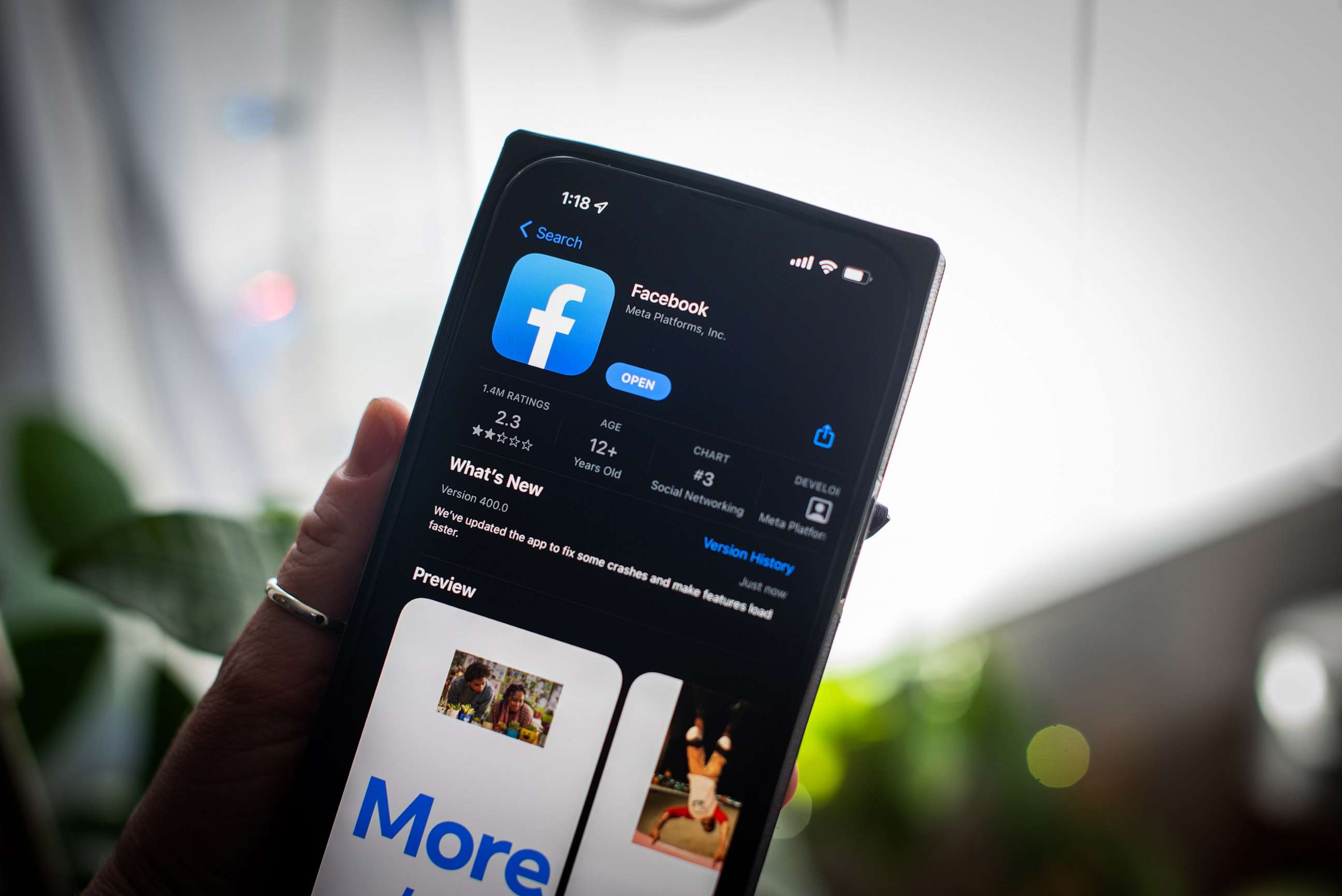Supreme Court hears major cases on free speech, laws regulating social media
Laws in Texas and Florida limit companies' power to moderate political content.
Are Facebook, Instagram and YouTube more like newspaper publishers or telephone companies?
The Supreme Court on Monday wrestled with that question for nearly four hours in a pair of cases being called the most important tests of the First Amendment in the internet era.
The justices' answer could be critical to setting the terms of online speech for generations and fundamentally alter how businesses and consumer experience the internet.

During oral arguments in the cases, a majority of justices appeared skeptical of state laws that would limit the editorial judgment of private online companies in managing user accounts, curating news feeds, and producing search results on their platforms.
"I wonder, since we're talking about the First Amendment, whether our first concern should be with the state regulating what we have called the modern public square?" said Chief Justice John Roberts.
Florida and Texas each enacted measures in 2021 ordering social media companies to issue notice and explanation any time a user's content is removed or account suspended and loosen filtering restrictions that lowered the profile of certain content.
Both laws were enacted following the platforms' decisions banning then-President Donald Trump after Jan. 6 and conservatives' longstanding concerns about the sites' censorship of content based on politics.
The states argue that social media platforms are akin to "common carriers," like utility companies, which are subject to government regulation, and must accept all users' content regardless of viewpoint.
"These social media companies are hosting speech. So, why isn't that more like a newspaper?" asked Justice Amy Coney Barrett.
"They're making content judgments about the kind of speech that they think they want on the site and the kinds of speech that they think is intolerable," noted Justice Elena Kagan of the companies' algorithms, suggesting the judgments are likely protected by the First Amendment.

At the same time, several members of the high court voiced concern about the companies' potential for censorship and exclusionary behavior in direct messaging tools, email programs, and even ride share services.
"How about Uber discriminating on the basis of viewpoint with respect to people that its drivers will pick up? Is that okay?" Justice Samuel Alito asked attorney Paul Clement representing the tech industry.
"I don't think that's okay. I don't think Uber is interested in doing that," replied Clement.
Justice Clarence Thomas questioned whether algorithms that help sort and curate information across the internet can even qualify as protected "speech."
"What is the algorithm saying? I don't know. I'm not on any, you know," Thomas said of the platforms. "Is it a consistent message? What are they saying here?"
Clement replied: "They are saying things like Facebook doesn't want pro-terrorist stuff on our site.

The internet companies have long insisted they have the right to set their own standards, like any other publisher, and cannot be forced to host messages on their platforms that they don't support, such as hate speech, misinformation and other malicious content.
Federal appeals courts have divided on the question: one striking down Florida's law as a violation of the First Amendment, another upholding Texas' law as permissible government intervention.
The court is being asked to decide whether an injunction against both state laws should continue, with the expectation that the justices will revisit the questions down the road after further litigation.
The internet companies say a ruling in favor of Texas and Florida would result in a sharply limited content filter on the platforms in those states, creating a dramatically complicated user experience and flood of unwanted and dangerous content.
"If this statute goes into effect we'd have to fundamentally change our business models," Clement said, speaking on behalf of companies represented by the industry group NetChoice.
"These laws make it impossible for us to keep material that's harmful to children off of our sites unless we take so much material off of our sites that nobody can say that we're not being inconsistent or not discriminating," he added.
A ruling in favor of the companies would preserve the status quo, which the states allege allows the platforms to silence the views of conservatives, including opponents of vaccines and those who deny President Biden won the 2020 election.
"The platforms do not have a First Amendment right to apply their censorship policies in an inconsistent manner and to censor and deplatform certain users," argued Florida Solicitor General Henry Whitaker.
The justices are expected to hand down a decision by the end of June.




